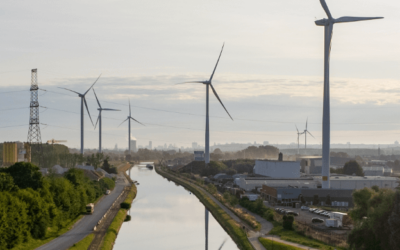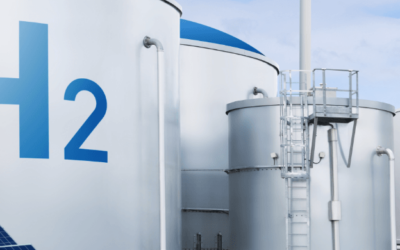Those companies interested in the new ‘Temporary upscaling instrument for hydrogen via electrolysis’ grant scheme should take note. While the preparations and consultation rounds are fully under way and the first outlines of the scheme are in place, there are delays. The European Commission’s guiding principles are not yet clear and approval has not yet been given. The scheme is therefore not expected to open until the second half of 2022.
Background to the temporary scale-up instrument
Facilitating sustainability by means of hydrogen will be an essential factor in the energy transition. The unique position of the Netherlands means that this transition offers plenty of opportunities for a variety of sectors. To respond to this effectively, the Dutch Ministry of Economic Affairs and Climate Policy is preparing a new grant scheme: the ‘Temporary upscaling instrument for hydrogen via electrolysis’ in partnership with other ministries and stakeholders in the climate agreement, such as the Top Sector Energy.
What we already know about the new scheme
The new grant scheme is aimed at implementing multiple hydrogen demonstration projects for achieving cost reduction and upscaling in the future. The ministry also hopes that this will stimulate demand for hydrogen in all sectors. The following are some highlights of the new scheme (subject to change):
- There is an available grant budget of 250 million euros for the first round. Multiple rounds will follow in the coming years.
- The first generation projects will probably involve electrolysers with a production capacity of up to 50 MW.
- The grant will be provided to cover both investment and operational costs.
- The scheme is tender-based, with only the best projects being awarded grants. The projects will probably be ranked on the basis of capacity cost-effectiveness (euros of the grant per MW produced by the electrolyser).
- The grant scheme is similar to the DEI+/SDE++ and will be open to hydrogen projects only.
- There is no phasing – instead, there is one opening date and one closing date.
- A permit must be issued for the electrolyser, and does not have to be irrevocable. It is not yet certain whether this will apply to both the environmental and construction components.
Requirements for the consultation rounds
The Netherlands Enterprise Agency (RVO) organised two consultation meetings for the new grant scheme in the first half of January. Previous consultations had already taken place in January and June 2021. These consultation rounds have demonstrated a lack of clarity about how certain requirements are to be handled in the scheme, including:
- Whether there are specific requirements for the renewable electricity used in projects with a grid connection or a direct connection.
- Whether there will be a requirement to limit the full-load hours (using the SDE++ method as a guiding principle), with the electrolyser having to be switched off outside the eligible hours.
The latter is unfavourable with respect to the business case, but battery storage is potentially a partial solution and is still being considered for eligibility in the new grant scheme.
Opening delayed
Discussions around sustainability requirements, the elaboration of definitions and conditions, and the publication of the Delegated Act by the European Commission are all taking longer than expected. It goes without saying that this is having an effect on the planning for the ‘Temporary upscaling instrument for hydrogen via electrolysis’. It is expected that, after obtaining EC approval, the new scheme will only open in the second half of 2022.
We will keep you informed through our website and newsletter!


